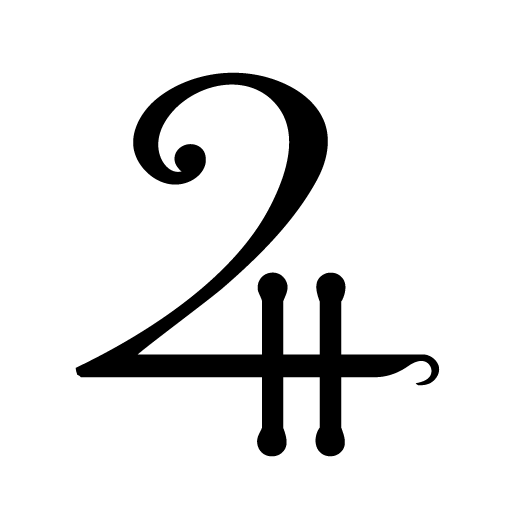Suspense is...wait for it...
I recently attended a test-screening for an upcoming Hollywood movie. Wasn't told the title, the actors, the director—just told to show up for something probably rated "R", probably in the thriller genre. So far, so mysterious. I had no idea what kind of train-wreck I was in for.
The NDA I signed prevents me from saying anything specific about the film. So, no mention of the big movie stars, the famous director, the top-notch screenwriter. But it was a fascinating experience, and a master class in how *not* to make a suspenseful thriller. If they take the audience's comments to heart, this might turn into a story of redemption: how a big, expensive movie gets improved before release. And, speaking as a writer, it really reinforces the value of "beta readers" examining your work.
This was not your typical sneak preview: there were metal detectors, all cell phones were taken to prevent any recording, and there were at least a half-dozen market research people—slick, professional personnel—hovering around, filling seats, and directing people to fill out feedback forms. We were warned that this was an early version of the film, with some unfinished special effects (I noticed a few of those), possibly unfinished music, and the like.
What worked? The scenes that felt like the director working alone, and the scenes that felt like the writer working alone. How those scenes blended together, however, was an epic fail. In a way, that's good news, because they've got enough time before the release date (according to IMDB) to do some heavy editing, some ADR work, and perhaps even re-shoots.
When I say "the director working alone," I mean scenes of action and movement, the way the camera captures gorgeous vistas and textures, and virtuoso visual storytelling. The quality of the screenplay showed in clever exchanges of dialog, verbal storytelling through voice-over flashbacks or soliloquy, and the depth of the ideas in the story. There were engrossing and funny anecdotes shared between characters that were almost Tarantino-esque in quality. There were metaphors of the non-clichéd variety that were put forth early and picked up later for a payoff.
But…
There were many passages of groan-inducing dialog. Things that sounded, in context, far too pretentious for any person to say to another. Other lines felt like the cheesy work of an uncredited script doctor, or ad-libs from misguided actors, or words tossed in by the director. The impression was one of slipping from believable, flowing conversation to head-slapping, did-she-just-say-that non-sequiturs.
There were instances of terrible repetition. Imagine that, as a screenwriter, you need to convey that Mr. X is "getting too old for this s#!t" (not an actual like from this movie). So you have three scenes in a row where three separate characters tell Mr. X that he's "maybe getting too old for this s#!t," and now you've bludgeoned your audience with information they already got. Here's an idea: if you're devoting so much screen time to telling us that Mr. X is getting that way, why not give us a scene that shows it, instead?
A thriller with no suspense is a failure. An Alfred Hitchcock quote springs to mind. Paraphrasing liberally: "Two men get on a train and sit down to talk. Some time later, the train explodes. That's action. Now—two men get on a train, and one of them sets down a case containing a bomb with a 20-minute timer. He talks with the other man. He checks his watch repeatedly. He's distracted, and starts missing things being said. He begins to perspire. That's suspense."
Suspense is about information. That's where this movie falls short. Despite smacking us over and over with things we already understood, it leaves out crucial details—seemingly in service of being "mysterious"—that the audience has got to have. We're not sure if the main characters are criminals, or are just opportunists who want to rip-off the criminals. A rip-off does occur, but we're not sure who's doing it, why they're doing it, and why everyone else seems surprised. The film ends up as a pile of well-shot, well-written scenes about creepy people doing nasty things to each other for no good reason.
Criminals back-stab and betray one another? Yes, I've been paying attention to pop culture for the last few decades: I got that memo. But take a look at The Godfather. Loyalty is the highest value. A strict code governs behavior within the mob like some sort of perverse and twisted morality. The stakes for each character are laid out, motivations both overt and hidden. The audience knows more than any one character, but doesn't know who the traitors will be or when the betrayal will come.
The key points being: we need to know stakes, motives, and relationships. Only then can we invest in the outcome. Only then can we empathize with the characters, sharing their aspirations, somehow rooting for them even when we know what they're doing is wrong.
It's a great lesson for a writer to learn: give your readers a chance to invest in the plight of your characters. Give readers opportunities to care by sharing what characters hope for, what they dream of, what precious things they'll put in jeopardy by taking action. By showing what your characters stand to lose, you stand to gain readers who will stick with your story.
Wilder's Wonka's Wonderful

